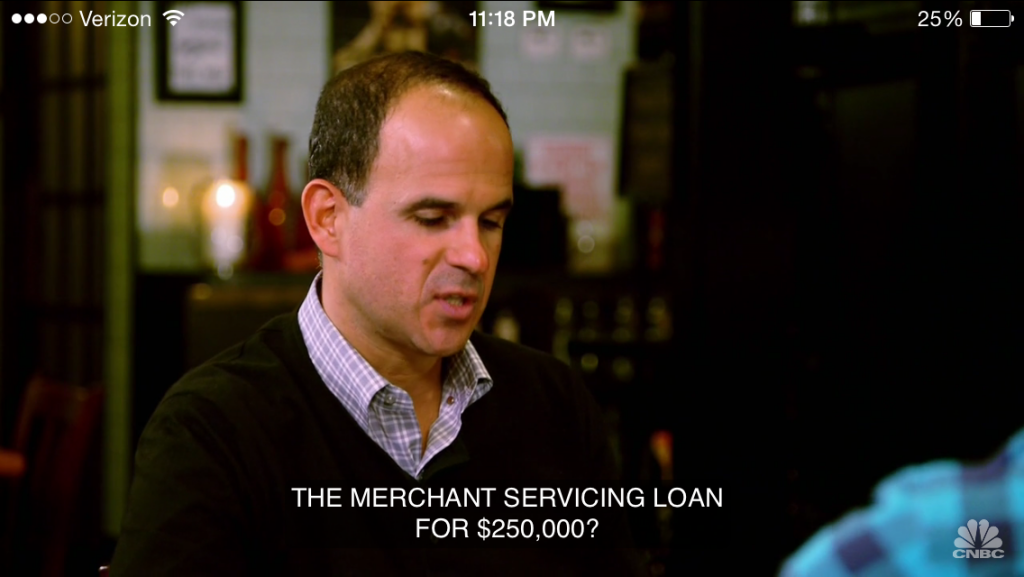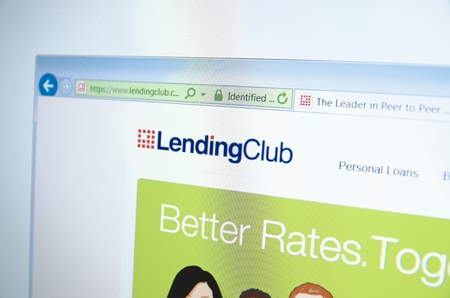Archive for 2017
After Fork, Coinbase Has Change of Heart on Bitcoin Cash
August 6, 2017 Now that Bitcoin Cash has forked off of Bitcoin, Coinbase is no longer taking a hard line stance against the alt currency. In a new email they sent to account holders, they cite security of the network, customer demand, trading volumes, and regulatory considerations as the reasons they have decided to support Bitcoin Cash by January 1, 2018. Not mentioned are the rumored threats of class action lawsuits for withholding Bitcoin Cash from their account holders.
Now that Bitcoin Cash has forked off of Bitcoin, Coinbase is no longer taking a hard line stance against the alt currency. In a new email they sent to account holders, they cite security of the network, customer demand, trading volumes, and regulatory considerations as the reasons they have decided to support Bitcoin Cash by January 1, 2018. Not mentioned are the rumored threats of class action lawsuits for withholding Bitcoin Cash from their account holders.
On Twitter, Columbia University Professor Tim Wu had likened Coinbase’s original refusal to turn over Bitcoin Cash to account holders to a hijacked stock split. “Imagine a stock split where the broker declined to issue the new stock to its owners,” he wrote on July 31st. He also wrote that Coinbase was “courting serious, maybe ruinous legal trouble if it doesn’t give the users the full value of the Bitcoin fork.”
There is little doubt that Coinbase would’ve been exposed to lawsuits because they have access to Bitcoin Cash through their users’ Bitcoin deposits but were keeping the Bitcoin Cash for themselves. And Bitcoin Cash is not exactly valueless. As of the time I’m writing this, 1 Bitcoin is equal to $3,226, according to Coinmarketcap.com. 1 Bitcoin Cash is equal to $204. Bitcoin is hovering around its all-time high while Bitcoin Cash is already the 4th most valuable alt coin.
A letter from Coinbase on their change of heart is below:
Dear Coinbase customer,
We wanted to give our customers an update on the recent Bitcoin hard fork. You can read more about what a digital currency fork is here:
https://blog.coinbase.com/what-is-a-bitcoin-fork-cba07fe73ef1
Forks enable innovation and improvements to digital currency and we believe that we will see an increasing number of forks in the future. We expect this to be a vibrant and innovative community.
When a digital currency forks, it creates a new digital asset. Adding new digital assets to Coinbase must be approached with caution. Not every asset is immediately safe to add to Coinbase from a technical stability, security, or compliance point of view.
Our top priority is the safety of customer funds and we spend extensive time designing, building, testing and auditing our systems to ensure that the digital asset we support remains safe and secure. We may not always be first in adding an asset, but if we do, you can be sure that we’ve invested significant time and care into supporting it securely. We believe this is the best approach for us to maintain customer trust.
In the case of bitcoin cash, we made clear to our customers that we did not feel we could safely support it on the day it was launched. For customers who wanted immediate access to their bitcoin cash, we advised them to withdraw their bitcoin from the Coinbase platform. However, there are several points we want to make clear for our customers:
Both bitcoin and bitcoin cash remain safely stored on Coinbase.
Customers with balances of bitcoin at the time of the fork now have an equal quantity of bitcoin cash stored by Coinbase.
We operate by the general principle that our customers should benefit to the greatest extent possible from hard forks or other unexpected events.
Over the last several days, we’ve examined all of the relevant issues and have decided to work on adding support for bitcoin cash for Coinbase customers. We made this decision based on factors such as the security of the network, customer demand, trading volumes, and regulatory considerations.
We are planning to have support for bitcoin cash by January 1, 2018, assuming no additional risks emerge during that time.
Once supported, customers will be able to withdraw bitcoin cash. We’ll make a determination at a later date about adding trading support. In the meantime, customer bitcoin cash will remain safely stored on Coinbase.
Thank you,
Coinbase Team
Funding Circle’s Hodges Talks $250 Billion Opportunity
August 3, 2017 Funding Circle, a marketplace that matches small businesses with lenders, broke a new barrier in the first half of 2017 with an 80 percent spike in global lending by about GBP 800 million. The U.S. marketplace lending arm, which was merged with UK-based Funding Circle in 2013, has experienced rising momentum over the same period.
Funding Circle, a marketplace that matches small businesses with lenders, broke a new barrier in the first half of 2017 with an 80 percent spike in global lending by about GBP 800 million. The U.S. marketplace lending arm, which was merged with UK-based Funding Circle in 2013, has experienced rising momentum over the same period.
Sam Hodges, Funding Circle co-founder and U.S. managing director, told deBanked that small business lending remains an underserved and untapped market, attaching a USD 250 billion value on the annual lending opportunity.
“I co-founded Funding Circle in the U.S. after experiencing firsthand how hard it is for established, successful businesses to access financing from the traditional banking system. The traditional banking system is broken and restricted by legacy issues, and most banks don’t view smaller-ticket commercial lending as their bread and butter.”
Since 2010, when Funding Circle was launched, investors including 60,000-plus individuals, financial institutions and the UK government have poured more than USD 4 billion into 32,000 businesses globally.
Currently the Funding Circle U.S. platform is only open to accredited and institutional investors. “Over time, we would love to offer this investment product to anyone in the U.S.,” said Hodges.
He further explained that Funding Circle marketplace enables investors to diversify their fixed-income portfolios with secured business term loans. All of the loans on the Funding Circle platform are pre-screened with a risk-rating and coupon rate attached, ranging from 4.99 percent to 27.79 percent, by seasoned credit professionals using proprietary data analytics.
“While there will always be some risk attached to any type of investing, Funding Circle concentrates on providing loans to established businesses that have operating history, cash flow and a strategic plan for growth,” said Hodges.
Main Street USA
Funding Circle borrowers have typically been in business for around a decade and generate annual revenue of $2 million with a staff of about 10 people. One key differentiator from the likes of industry giant Amazon Lending is that borrowers on the Funding Circle platform could be brick and mortar shops.
“Amazon is an impressive organization, but what we’re doing is different in a variety of ways. Where they are focused on helping merchants that sell on their marketplace, our borrowers include restaurateurs, gas stations, medical clinics, construction firms, IT consultants and more,” said Hodges.
He went on to describe Funding Circle borrowers: “Walk down Main Street in any American town, and you’ll see examples of our borrowers. These are established businesses who have been underserved by the traditional financial sector — they have assets and cash flow to secure loans, and a legitimate plan for growth. We actually have many borrowers who choose our loans over a traditional bank loan, because they are faster and easier.”
Full Circle
Funding Circle started off the year with a bang, having raised USD 100 million in equity capital to help accelerate growth not only in the U.S. but also the UK and continental Europe. Meanwhile the startup continues to invest heavily in technology and talent.
“We are focused on building a world-class technology platform that can handle millions of transactions daily and deliver a best-in-class customer experience for borrowers and investors,” Hodges told deBanked.
Along those lines, Funding Circle recently bolstered its executive team both stateside and globally, including the recent addition of Sean Glithero as CFO, who is to be based in London when he begins in his new role this fall.
“Sean shares our enthusiasm for building a better financial world by revolutionizing the financial system and securing a better deal for everyone. Sean’s record at Auto Trader, helping drive strong profit growth and shaping a digital marketplace into a dominant position, makes him ideally suited for this role,” Hodges said.
Meanwhile the U.S. executive team is also expanding, evidenced by the recent additions of Joanna Karger as U.S. Head of Capital Markets and Richard Stephenson, who joined as U.S. Chief Compliance Officer.
He is taking the reins of a balance sheet whose UK business achieved profitability in the first half of 2017. “Here in the U.S. we are doing quite well and continue to invest in growth” concluded Hodges.
Marcus Lemonis Rebuked Kabbage on Twitter
August 3, 2017
While the fintech community heralded Kabbage’s $250 million Series F round this morning, small business fixer and CNBC TV star Marcus Lemonis was not impressed.
On twitter, Lemonis wrote to Squawk Box host Carl Quintanilla, who was airing a segment about Kabbage, to say that Kabbage charged ridiculous rates. The short rant, which totaled 4 tweets, zinged Kabbage by calling them a lender of last resort and “not a friend of small business.”
Wouldn't call @KabbageInc #kabbage a lender. Ridiculous rates @carlquintanilla @SquawkAlley
— Marcus Lemonis (@marcuslemonis) August 3, 2017
Not a friend of small business. Lender of last resort with fees and rates
— Marcus Lemonis (@marcuslemonis) August 3, 2017
@SoftBank likes the high rate account sweep tactics
— Marcus Lemonis (@marcuslemonis) August 3, 2017
He should be glad I'm not there
— Marcus Lemonis (@marcuslemonis) August 3, 2017
Though Lemonis did not respond to my tweet that asked him if there were any online lenders he thought positively of, he likely is no stranger to the phenomenon. Last year, I pointed out that several small businesses that have appeared on his show, The Profit, have used nonbank alternatives.
In Season 3, Da Lobsta, a Chicago Sandwich shop, reported owing $140,000 to an internet lender and $40,000 to Square.
Square Capital, which has since traded merchant cash advances for actual loans, reported making 49,000 loans to small businesses last quarter alone for a total of $318 million. Kabbage, meanwhile, has lent $3.5 billion to more than 115,000 small businesses in their lifetime.
Square Capital Funded $318M in Q2
August 3, 2017Square’s small business lending arm, Square Capital, issued 49,000 business loans for a total of $318 million in Q2, according to their earnings report. That’s a quarter-over-quarter increase of 26.7% and slightly more than half the loan volume that their rival OnDeck originated in Q1. That statistic is significant because Square is a payment processor first and a lender second while OnDeck is only a lender.
Square had a net loss of $16 million in the second quarter on $552 million in revenue. The stock price has nearly doubled year-to-date, according to the deBanked Tracker.
32% of Square Capital users say they are using the funds to purchase equipment or open a new store. 31% say they are using it to purchase inventory while 23% say it’s to fund day-to-day general & administrative expenses and marketing expenses.
In December 2016, deBanked received a $35,000 loan from Square, the experience of which was detailed in the Jan/Feb Magazine issue.
Yellowstone Capital Originated $45M in Funding in July
August 1, 2017NJ-based Yellowstone Capital originated $45 million in funding for small businesses last month, according to a company email obtained by deBanked. Two sales reps alone funded 170 deals and 139 deals respectively for a combined $7.45 million.
The monthly volume was only $2 million shy of the $47 million originated in June.
Tips From the Source: Small Businesses Told deBanked How They Wanted Loans to be Marketed to Them
July 31, 2017
Small business owner Jim Moseley is inundated with calls from online funders—and he hates it. They frequently use unscrupulous tactics to try and get his attention. More than one has claimed to be a close friend so his assistant transfers their call. Then they try to reel him in with stories they’ve concocted about past personal connections. The unprofessional-sounding calls also irk him—where a salesman insists he’s local, but his voice sounds muffled and distant. In these instances, Moseley usually hangs up within a few seconds.
“The layer of sleaze is as thick as lard in the calls that I get,” he says.
Like many small business owners, Moseley, the chief executive of TransGuardian Inc., a shipping solutions company based in Petersham, Massachusetts, finds these types of calls extremely off-putting. In fact, it’s what made him hesitant to do online funding to begin with—until it became absolutely necessary since he couldn’t get a bank loan.
He’s not alone. As online financing proliferates, several small business owners say they are increasingly being bombarded with stacks of snail mail, multiple cold calls a day and numerous unsolicited emails offers—many of which they don’t understand and therefore won’t accept. Rather, small business owners say they prefer to work with companies that are forthcoming, provide sound advice and have taken steps to prove their credibility. They offer several tips on how funders can win more of their business.
Tip No. 1: Can the cold-calls
Several small business owners say they don’t mind when lenders follow up with them after a legitimate interaction. But they could do without the boiler-room tactics.
“It feels like a loan shark situation,” says Sean Riley, co-founder of DUDE Wipes, a Chicago-based company that makes flushable wipes for men. Riley, who has several good experience obtaining loans through Kabbage, finds the constant phone calls from firms he doesn’t know particularly vexing. He suggests lenders drop the high-pressure routines and find more effective ways to promote their services to small businesses. “These companies could be very credible. I don’t know. But I don’t perceive them as credible—and perception is reality,” he says.
Tip No. 2: Step up legitimate marketing efforts
Donna Cravotta chief executive and founder of Social Pivot PR, a Bedford, New York social media and marketing communications firm, says online funders should seek out simple, cost-effective ways to get their name in front of small businesses. For relatively little money they can sponsor local small business events. She also suggests that online lenders volunteer to speak at small business events and teach small businesses how to leverage online lending opportunities. They could also appear as guests on financial podcasts or broadcast Webinars to the small business community, says Cravotta, who has taken a few loans to fund her business, two of which were with Lending Club.
R.T. Custer, co-founder and chief executive of Vortic Watch Company in Fort Collins, Colorado, offers some additional advice: Customers don’t believe when you self-publish your testimonials. When he sees a review on a website, he wants to know how much a company has paid for that review. Instead, he relies on third party confirmations of a company’s worth. “When it’s clearly something that is not paid for, that is the best kind of advertising,” says Custer, an OnDeck customer whose business turns antique pocket watchers into wrist watches.
Tip No. 3: Deliver personal attention
As much as they hate aggressive salespeople, small businesses love personal attention from their lenders. Dana Donofree, founder and chief executive of AnaOno Intimates, a Philadelphia-based company that designs and sells apparel for breast cancer survivors, appreciates the stellar customer service she gets with OnDeck. The sales rep follows up appropriately to make sure everything is going well, but doesn’t bombard her constantly. She gets an occasional email asking if she needs more funds—but the communications aren’t overly aggressive. “Some institutions can really be sales pushy and call you several times a day. I’ve blocked more numbers than I would like to admit,” she says.
Tip No. 4: Be a resource for small business owners
Online lenders can also gain traction by helping customers better understand the financing process; many small business owners often don’t know much about financing and would appreciate getting sound advice from lenders, according to Sandy Lieberman, who co-owns Artemis Defense Institute in Lake Forest, California.
She and her husband started the business a few years ago to offer reality-based training to law enforcement, military personnel and civilians. When the business needed cash, Lieberman began searching online for a bank loan, but wound up taking a merchant cash advance instead. After a few rounds, she started getting bombarded with solicitations. “I think the stacks of mailings from companies must have been four-inches thick,” she recalls.
After additional research, she reached out to Lendio to broker an $85,000 term loan; she later took another loan for $204,000 through Lendio. While these funds have brought her business to a better place—and she has learned a lot in the process—she feels online lenders are missing out on a prime teaching opportunity.
“Some lenders think business owners know more than they already do. Some really don’t know a lot and could use more hand-holding,” she says.
In hindsight, Lieberman—who nearly destroyed her personal credit while trying to run her business—wishes a funding company had offered her a short class on financing; she would have attended, even for a small cost. Access to a finance coach—someone at the lending company who could help business owners plan proactively without ruining their personal credit—would also be a boon, she says.
“Small business owners are wearing many hats—customer service, payroll, financing, strategic planning. In the midst of all that they don’t know necessarily know how to make wise funding decisions,” she says.
Tip No. 5: Advertise
There are plenty of small businesses that need funds, but many simply don’t know where to turn. Consider a TD Bank survey of 553 small business owners in late March that found 21 percent have or will seek a loan or line of credit in the next 12 months. While the majority of these businesses plan to try their bank first, a sizeable number—11 percent—don’t know how to seek credit when they are ready. While many small businesses have found lending partners by Googling for information, others simply feel stymied by the process.
Take the case of Scott Deuty, who is having trouble obtains funds for Coolbular Inc. in Cheyenne, Wyoming, which serves as an umbrella for his kiddie ride business and his writing and publishing services. He wants to raise funds but has bad credit and doesn’t meet the revenue requirements for certain lenders. There are so many lenders; he doesn’t know how to find the right one—or one that might be willing to take a chance on him. “It’s very difficult,” he says.
Deuty’s case is an example of the paralysis that can happen when small businesses don’t know where to turn. It’s an opportunity for alternative funders to gain a leg up by marketing more appropriately to small businesses that may not know they exist—or how to find them.
Custer, of Vortic Watch, reached out to OnDeck for a bridge loan after seeing a television ad that ran during an episode of Shark Tank. He also suggests funders use online advertising to gain broader exposure. “If a business owner is trying to find a loan, they are going to Google, ‘I need a loan,’” he says.
 Tip No. 6: Ramp up business referrals
Tip No. 6: Ramp up business referrals
Another way small businesses hear about lending opportunities is through business referrals. Azhar Mirza, founder of SomaStream Interactive, an e-learning solutions provider in Berkeley, California, says funders should actively seek out more referral partnerships. In 2015, his company couldn’t afford its online marketing costs. Then a lifeline came its way. Mirza received an offer from Google telling him his company was eligible for a loan to help finance the online advertising it was doing through the Google AdWords program. The offer was part of a new pilot program between Google and Lending Club to extend credit to smaller companies that use Google’s business services. SomaStream got access to the funds it needed, but in lieu of cash, the company received advertising credits with Google.
The pilot program between Google and Lending Club ended in the first quarter of 2016, but Mirza believes similar partnerships would be a great tool for online lenders. Certainly for Mirza, the timing was precipitous, he says.
Push notifications from trusted business partners can also be an effective marketing tool, when used in moderation. When Yvonne Denman-Johnson, co-founder of HootBooth Photo Booth, a Lago Vista, Texas, manufacturer of photo booth kiosks, needed money, she happened to receive a notice from Shopify, the company’s e-commerce software and hosting provider, talking about its merchant cash advance services. She has one outstanding advance through Shopify, which she is working to pay off.
Tip No. 7: Be transparent
Denman-Johnson got the funds she needed, but she feels MCA providers need to be more transparent about the effective interest rate—at the advertising stage, not at the approval stage—so small businesses can make more informed decisions without having to do all the calculations themselves. Otherwise, some small businesses might decide not to pursue this form of funding because of the unknowns. Her company almost walked away, but decided to go through the full application process. At this point, Shopify provided the effective interest rate, which was in the 12 percent range. Other funders she researched were in the 30 percent range—which she describes as “outrageously” expensive.
 Indeed, small business owners want to work with funders that outline the terms clearly and offer comparisons. Lisa Ayotte, founder of Soul’y Raw, a specialty pet food provider in San Marcos, California, has had good experiences with Kabbage, On Deck and Fundbox.
Indeed, small business owners want to work with funders that outline the terms clearly and offer comparisons. Lisa Ayotte, founder of Soul’y Raw, a specialty pet food provider in San Marcos, California, has had good experiences with Kabbage, On Deck and Fundbox.
She wishes, however, that all online lenders offer more detailed information about the loan programs they offer on their website—so small businesses can weigh their options before they go through the actual application process. Small businesses want to know, for instance, whether a lender offers debt consolidation. They also want funds to spell out clearly on their websites the various types of loans offered and the underwriting criteria. Ayotte also suggests lenders provide links to online loan calculators so small businesses can understand what the terms mean to them.
Small business owners want to be told like it is. That’s one major appeal of online lending—if you’re going to be turned down, you typically know right away says Ricardo Picon, the co-owner of The Sandwich Shop, a restaurant and catering business in Williamsburg, New York.
He took an $88,000 loan in February issued by Excelsior Growth Fund, a U.S. Treasury-certified Community Development Financial Institution, but in the future, he says he would consider using a different type of online lender. It would depend on the rates, the economic times, monthly payments and closing fees, among other things. “I want transparency. I want to know if they are going to give me the money or not so I can move on. This way there are no false hopes,” he says.
Tip No. 8: Make the process as easy as possible
Small business owners also prefer to work with online lenders that make the process seamless. AJ Saleem, founder of Suprex Learning, a Houston-based private tutoring and test prep company, was proactive about searching for online lending options. He chose a loan with Lending Club in part because the process was so easy. Some applications he started, but never finished because the process was too onerous. With Lending Club, the process was quick, there were fewer questions asked and the funder asked for less documentation than some competitors, Saleem says.
To be sure, rates are really important to small businesses, but they also want to work with funders they feel are on the up-and-up. “We want a square deal,” says Moseley, the chief executive of TransGuardian. “Tell us what the deal is in an honest and professional way and if we like it we’ll do business.”
A Bitcoin Hard Fork is Coming and Creating New Money With It
July 30, 2017On August 1st, Bitcoin will fork into two different currencies. That’s because a significant group of developers and miners believe that the Bitcoin protocol needs an upgrade in order to scale. Not everyone agrees so the chain is splitting in two. Since a split chain will share the same history, anyone who owns Bitcoin on one chain will automatically own the same amount of Bitcoin on the other chain. To avoid confusion, Bitcoins on the new chain will be called Bitcoin Cash.
You can think of this fork as a stock split except that Bitcoin & the new Bitcoin Cash will have a different value and future. An original Bitcoin at present has a value of about $2,700 per coin. Bitcoin Cash will likely be worth less.
If you store your Bitcoins on an exchange, you could actually miss out on getting your Bitcoin Cash. Coinbase, for example, an exchange based in San Francisco, said that its users will not be able to access Bitcoin Cash. In a letter they sent out to customers last week, they advised customers withdraw funds before the fork if they hope to benefit from Bitcoin Cash.
Dear Coinbase Customer,
We wanted to provide an update on proposed changes to the Bitcoin network and what that means for bitcoin stored on Coinbase. You can read more about what a digital currency fork is https://blog.coinbase.com/what-is-a-bitcoin-fork-cba07fe73ef1.
Our first priority is the safety of customer funds. In the event of a fork, customer fiat currency (USD, EUR and GBP) and digital currencies (bitcoin, ether and litecoin) are safe.
On August 1st, 2017 there is a proposal to make changes to the bitcoin software. This proposal, known as Bitcoin Cash, is likely to create a fork in the Bitcoin network. This means that after August 1st, 2017 there are likely to be two versions of the Bitcoin blockchain and two separate digital currencies.
In the event of two separate blockchains after August 1, 2017 we will only support one version. We have no plans to support the Bitcoin Cash fork. We have made this decision because it is hard to predict how long the alternative version of bitcoin will survive and if Bitcoin Cash will have future market value.
This means if there are two separate digital currencies – bitcoin (BTC) and bitcoin cash (BCC) – customers with Bitcoin stored on Coinbase will only have access to the current version of bitcoin we support (BTC). Customers will not have access to, or be able to withdraw, bitcoin cash (BCC).
Customers who wish to access both bitcoin (BTC) and bitcoin cash (BCC) need to withdraw bitcoin stored on Coinbase before 11.59 pm PT July 31, 2017. If you do not wish to access bitcoin cash (BCC) then no action is required.
We plan to temporarily suspend bitcoin buy / sells, deposits and withdrawals on August 1, 2017 as the fork is likely to cause disruption to the bitcoin network. This means your funds will be safe but you will be unable to access your bitcoin (BTC) for a short period of time.
We will keep you updated on this event through our blog, status page and Twitter.
Thank you,
Coinbase Team
If you are one of the few people in the alternative finance community who has still never owned, bought, or sold something with Bitcoin, Coinbase is a good place to start. They are fully licensed in New York State. Sign up here.
deBanked has accepted Bitcoin as a form of payment since 2014.
The value of a Bitcoin is up 63% year-to-date, according to the deBanked Tracker, while the S&P 500 is only up 10%.
Loans to a Business Not Paying Their Payroll Taxes Results in the Banker Being Convicted
July 29, 2017 Here’s a chilling situation that lenders, factors and MCA funders working with merchants who are behind on their taxes might want to take note of.
Here’s a chilling situation that lenders, factors and MCA funders working with merchants who are behind on their taxes might want to take note of.
On June 27th, Douglas Corriher, a bank VP, was hit with a 32-count superseding indictment over a factoring fraud conspiracy with a staffing company in North Carolina. Despite the dozens of pages alleging improper conduct between Corriher and the staffing company owner, Corriher pled guilty to employment tax conspiracy because Corriher knew the staffing company owed payroll taxes but factored their invoices anyway to enrich the bank.
As the Department of Justice summarized it:
“Corriher was aware that the company owed more than $1 million in payroll taxes. Notwithstanding this, Corriher continued to make advances on the loans knowing that the fund of unpaid payroll taxes would enable the staffing company to repay the loan and allow the bank to continue collecting high rates of interest on the loan advances along with lucrative fees.”
The indictment had alleged that Corriher knew that the money withheld for payroll taxes by the staffing company would be diverted to pay the bank instead of the IRS despite the IRS having a de facto superior lien. The bank was said to be illegally in possession of the IRS’s money due to the banker’s actions.
Despite more than 30 counts of offenses seemingly more egregious than this, employment tax conspiracy is what garnered a conviction. Corriher is scheduled to be sentenced on October 6th. He faces a maximum of 5 years in prison.





























